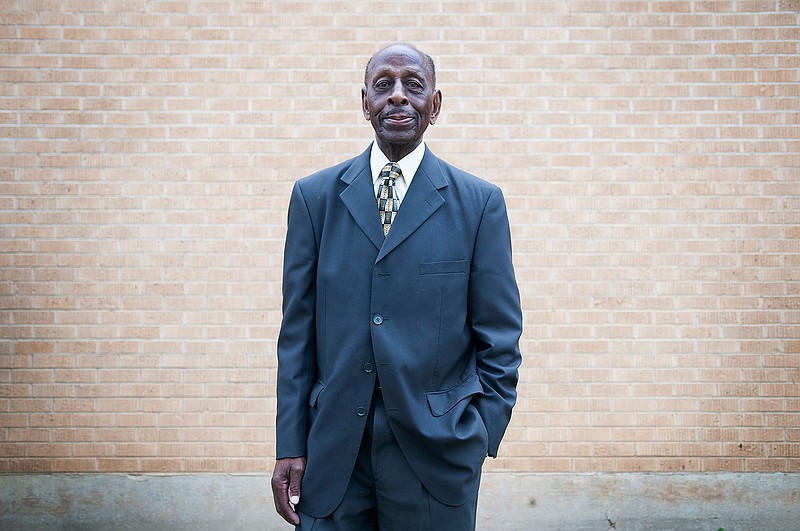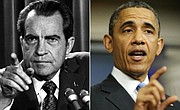The halt to legal segregation of public schools might easily conjure up nationwide images of intolerance and racism displayed by those who openly hoped for integration to end before it began.
However, the period of transition for African-American students might as easily bring to mind the positive influence of African-American educators who are said to have shown courage in facing integration with the students while working to instill hope and confidence in all of them.
Donald Nelson is a local pioneer for the African-American community in the area of education and is well-known in the Texarkana area. Nelson graduated from Booker T. Washington High School on the Arkansas side in 1954."I was a high school senior in 1954 when the courts passed Brown vs. Board of Education," Nelson said. Though the landmark case decided that separate public schools for black and white students was unconstitutional, a specific time frame was not given for the states to integrate public schools.
Nelson said the courts merely told states they needed to integrate public schools "with all deliberate speed."
"It became an issue of what this meant, and so we knew that it would be coming soon," he said.
In the meantime, Nelson went to college after graduation to earn his bachelor's and master's degrees, along with further study at various colleges and universities throughout Arkansas.
By 1969, Nelson had been teaching for nearly 10 years at his high school alma mater, Booker T. Washington High School. Fifteen years after the 1954 decision, Texarkana, Ark., High School was integrated with Booker T. Washington High School.
Nelson said that he was not initially assigned to a position in the Texarkana, Ark., School District but was instead kept at Booker T. Washington, which was used as a junior high for one year during the transition period.
"It may have been because of my Afro (hair)," Nelson said. Afro hairstyles, which have seen a surge of popularity in the last few years, were more of a cultural statement during that time period as a new, edgy and natural hairstyle.
Once Nelson made the move to Arkansas High in 1971, he was a classroom teacher for only one year before being invited to work as assistant principal at the high school.
"We were experiencing riots. Student riots. It was almost war on our high school campus," Nelson said. "Neither of the kids were happy, and that is where the school system failed."
Black students were not provided any type of orientation initially, and although some white students were kind and understanding, many were not. Nelson said students' self-esteem went down as a result of not having a voice or being represented in school organizations such as Student Council or extracurricular activities like cheerleading, though they were encouraged to play football.
"The school wasn't prepared for integration to actually last," Nelson said.
As a result, black students-including the football players-walked out in 1972 and refused to come back until the schools made a concession, Nelson said. That's when the Bi-Racial Student Council (now defunct) was born to help all students be heard, including black students and poor white students.
"Several of us were motivators, asking the students why they weren't running for class treasurer or president," Nelson said. "They were told by others they didn't belong. They weren't being represented."
Nelson said the student council was put together by students with the help of himself and another educator, named Gail Cogby, and included four representatives from grades 10-12, two black and two white from each grade.
"The principal at the time and board members were not happy, but it worked out so that all students were represented," Nelson said. "The thing is, if you take from people with a system that looks democratic on the surface-that's not democracy."
Though the bi-racial council didn't solve everything, Nelson said the riots and fighting stopped.
It was because of the rioting that the high school went through several principals during that time, Nelson said, and when Edward Trice, former superintendent of schools, came to him for the third time to invite him to take the principal position in 1981, he became the first African-American principal of the district.
Trice kept asking Nelson to take the position because he knew Nelson would work hard to protect and nurture all the students-and he was more likely to stay, having stuck with the high school for 10 years prior.
"Mr. Ed Trice was a fine man," Nelson said. "He was not a very popular man because he was a Christian man and wanted to be fair for everyone. He was far ahead of his time."
"I had a sidekick of sorts, Robert McDonald. He taught science, and before he left, I asked him to become assistant principal," he added. "Mac did a lot for encouraging the students to get involved in activities."
Nelson's daughter was a senior the year he became principal. She was serving as class president-something that would have been unheard of just 15 or 20 years before-and Nelson said he was proud of his daughter and honored to have served as principal for five years (1981-1986).
When he was growing up, Nelson said he lived in the Fairview area and had to walk by Texarkana, Ark., High School to get to Booker T. Washington High School, which he attended. Looking back, Nelson said it seems ironic that he had to walk every day past a school he was prevented from attending, only to later teach and become principal at the same school.
Most of all, Nelson said he feels blessed by God and thankful to have been chosen by Him to serve the community during that time and to have been able to stand with all the students, helping to guide them in future educational choices, lifting them up and helping them build confidence and demand change.
"I told the students as a joke: Some of you are light green and some of you are dark green, but you're all green," Nelson laughed.
Nelson has has since retired, served on the school board and worked with many community and educational programs throughout the area. Though he's technically retired, Nelson said he doesn't always feel like it.
"I don't think you ever really retire from education," he said, laughing.
Dan Haskins, who grew up attending Dunbar High School on the Texas side of town, was known by Nelson growing up-even though he was a few years ahead of Nelson and attended school on the opposite side of town. Like Nelson, Haskins is a well-known African-American pioneer in the Texarkana area and served as Texas High's first African-American principal after working for a time as assistant principal there.
Both Haskins and Nelson remain the only African-American principals that Texas and Arkansas High ever had.
"Dan laid the foundation for all the black administrators," Nelson said. "He has always been a good role model, math teacher, coach . Had he been a failure, none of us would have had the chance to work as administrators.
"He was a success,and his success provided African-Americans the foundation to be given the opportunity to succeed as administrators."
Though both men have received accolades and plaques from the schools and from community members and churches for their dedication to their communities and hard work over the years, Nelson said that is not why he tried to live his life the way he did.
"I went where God led me and worked hard to maintain order and dignity," Nelson said. "I was always a fairly stern educator. I wasn't trained to go out and work for accolades or awards but taught to do the right thing."
Nelson credits his mother, who always made it clear that she wanted him to get the type of education that was inaccessible for her generation.
"She knew that the world would be a very different one for her son and she wanted me to be prepared," he said.


